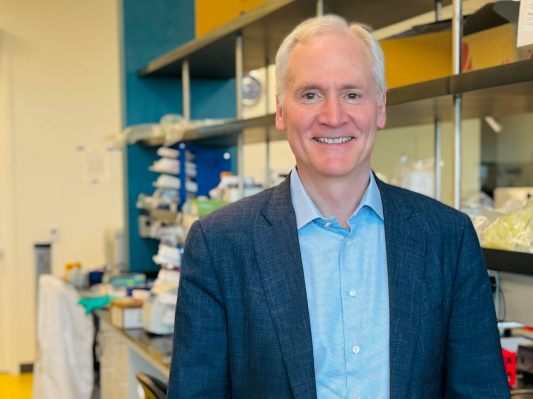
Advances in generative AI have taken the tech world by storm. Biotech investors are making a big bet that similar computational methods could revolutionize drug discovery.
On Tuesday, ARCH Venture Partners and Foresite Labs, an affiliate of Foresite Capital, announced that they incubated Xaira Therapeutics and funded the AI biotech with $1 billion. Other investors in the new company, which has been operating in stealth mode for about six months, include F-Prime, NEA, Sequoia Capital, Lux Capital, Lightspeed Venture Partners, Menlo Ventures, Two Sigma Ventures and SV Angel.
Xaira’s CEO Marc Tessier-Lavigne, a former Stanford president and chief scientific officer at Genentech, says the company is ready to start developing drugs that were impossible to make without recent breakthroughs in AI. “We’ve done such a large capital raise because we believe the technology is at an inflection point where it can have a transformative effect on the field,” he said.
The advances in foundational models come from the University of Washington’s Institute of Protein Design, run by David Baker, one of Xaira’s co-founders. These models are similar to diffusion models that power image generators like OpenAI’s DALL-E and Midjourney. But rather than creating art, Baker’s models aim to design molecular structures that can be made in a three-dimensional, physical world.
While Xaira’s investors are convinced that the company can revolutionize data design, they emphasized that generative AI applications in biology are still in the early innings.
Vik Bajaj, CEO of Foresite Labs and managing director of Foresite Capital, said that unlike in technology, where data that train AI models is created by consumers, biology and medicine are “data poor. You have to create the datasets that drive model development.”
Other biotech companies using generative AI to design drugs include Recursion, which went public in 2021, and Genesis Therapeutics, a startup that last year raised a $200 million Series B co-led by Andreessen Horowitz.
The company declined to say when it expects to have its first drug available for human trials. However, ARCH Venture Partners managing director Bob Nelsen underscored that Xaira and its investors are ready to play the long game.
“You need billions of dollars to be a real drug company and also think AI. Both of those are expensive disciplines,” he said.
Xaira wants to position itself as a powerhouse of AI drug discovery. However, some view bringing on Tessier-Lavigne as CEO as an unexpected move. Tessier-Lavigne resigned last year from his position as Stanford president amid allegations that his laboratory at Genetech manipulated research data.
But investors are confident that he is the right person for the job.
“I have known Marc for many years and know him to be a person of integrity and scientific vision who will be an exceptional CEO,” Nelsen said in an email. “Stanford exonerated him of any wrongdoing or scientific misconduct.”



![[CITYPNG.COM]White Google Play PlayStore Logo – 1500×1500](https://startupnews.fyi/wp-content/uploads/2025/08/CITYPNG.COMWhite-Google-Play-PlayStore-Logo-1500x1500-1-630x630.png)